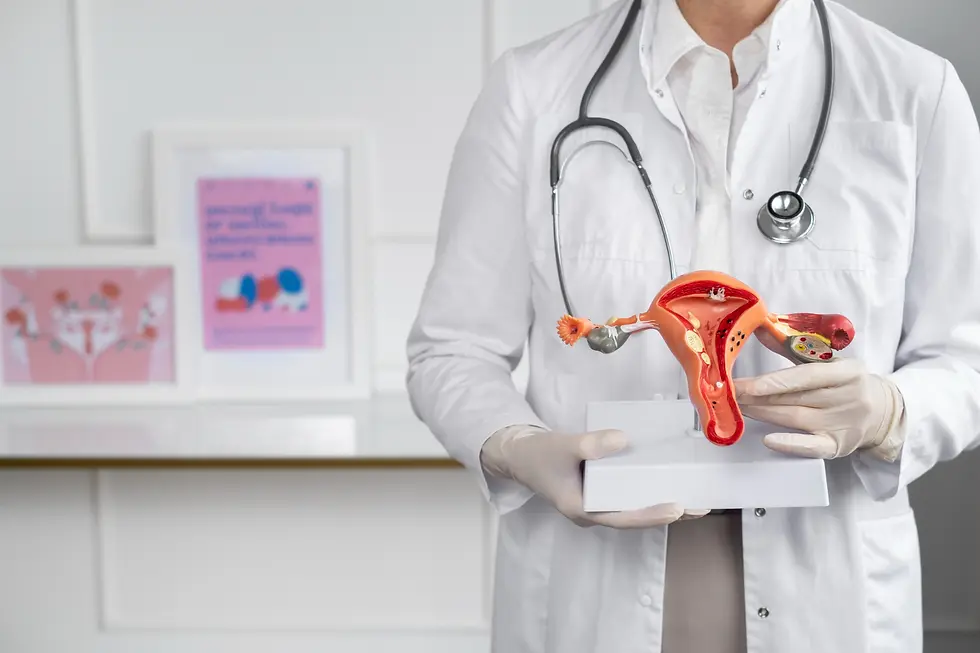Understanding Urology: When and Why to See a Urologist?
- Dr G R Manjunath | Urologist
- Nov 26, 2023
- 3 min read
Updated: Jan 3, 2024

Know Your Urologist: A Comprehensive Guide by Dr. G R Manjunath
Introduction:
Greetings! I am Dr. G R Manjunath, and today I want to take you through an informative journey about urology. Many of you might wonder what exactly a urologist does and when you should consider visiting one. Let's dive into understanding the role of a urologist and the crucial aspects of urological health.
1. Who is a Urologist?
A urologist is a physician who specializes in diseases of the urinary tract and the male reproductive system. This includes kidneys, ureters, bladder, urethra, and male reproductive organs. Urologists are trained to diagnose, treat, and manage patients with urological disorders. The specialty combines medical and surgical aspects, meaning we can treat conditions medically and perform surgeries if necessary.
2. Why See a Urologist?
You might need to visit a urologist for various reasons. Urologists are skilled in treating any condition related to the urinary system and male reproductive organs. Whether it's a urinary tract infection, kidney stones, bladder issues, or prostate problems, a urologist is your go-to expert. We also play a vital role in treating cancers of the bladder, kidneys, prostate, and testicles.
3. Common Conditions Treated by a Urologist
As urologists, we treat a wide array of conditions. Some of the common ones include:
Urinary Incontinence: This refers to the involuntary leakage of urine, affecting both men and women.
Urinary Tract Infections (UTIs): Infections in any part of the urinary system, most commonly in the bladder and urethra.
Kidney and Ureteral Stones: Hard, crystalline mineral materials formed within the kidney or urinary tract.
Benign Prostatic Hyperplasia (BPH): An enlarged prostate gland, common in older men.
Erectile Dysfunction (ED): The inability to get or keep an erection firm enough for sexual intercourse.
Male Infertility: Problems related to the production and quality of sperm.
4. Symptoms to Note Before Consulting a Urologist
If you experience any of the following symptoms, it might be time to see a urologist:
Difficulty urinating or pain during urination.
Frequent urges to urinate, especially at night.
Blood in urine.
Decreased sexual desire or performance issues.
Pain in the lower abdomen, pelvis, or genitals.
Unexplained urinary incontinence.
5. Surgical Conditions Treated
In addition to medical treatment, urologists are trained in performing various surgeries, including:
BPH (Benign Prostatic Hyperplasia): Frequently associated with non-cancerous prostate enlargement and distinct from malignant conditions like prostate carcinoma, BPH is a prevalent issue in aging men. It entails the enlargement of the prostate gland, resulting in difficulties with urination.
Prostate Cancer: A significant male health concern, prostate cancer involves the growth of malignant cells in the prostate gland.
Bladder Cancer: Characterized by the development of cancerous cells in the bladder, often presenting with symptoms like blood in urine.
Renal Cell Carcinoma: A type of kidney cancer that originates in the lining of the small tubes within the kidneys.
Stricture Urethra: A narrowing of the urethra caused by scarring, leading to reduced urine flow and potential urinary retention.
Kidney Stones: Hard mineral and salt deposits that form in the kidneys, often causing severe pain during passage through the urinary tract.
Tumors of Kidneys: These can be benign or malignant growths in the kidneys, affecting kidney function and overall health.
Testicular Tumors: Abnormal growths in the testicles, which can be benign or malignant, and are important to diagnose early for effective treatment.
Phimosis: A condition where the foreskin of the penis cannot be pulled back over the head of the penis, often requiring medical intervention.
Hydrocele: An accumulation of fluid around a testicle, often leading to swelling of the scrotum.
Female Incontinence: Refers to the involuntary loss of urine in women, which can be caused by various factors including childbirth, menopause, and urinary tract infections.
Hypospadias: A birth defect in boys where the opening of the urethra is not located at the tip of the penis.
Conclusion:
Understanding the role of a urologist and recognizing when to seek their expertise can significantly impact your urological health. As a dedicated urologist in Bangalore, I am here to help you navigate through these conditions with the utmost care and professionalism. Remember, early detection and intervention can make a substantial difference in treatment outcomes. So, do not hesitate to reach out if you experience any symptoms or have concerns about your urological health.



Comments